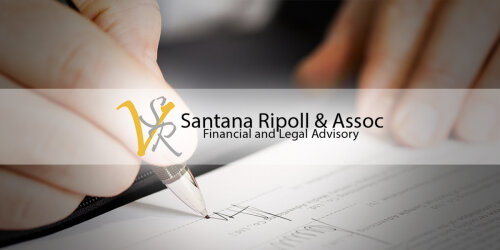Best Acquisition / Leveraged Finance Lawyers in Puerto Plata
Share your needs with us, get contacted by law firms.
Free. Takes 2 min.
List of the best lawyers in Puerto Plata, Dominican Republic
About Acquisition / Leveraged Finance Law in Puerto Plata, Dominican Republic
Acquisition and leveraged finance refers to the legal and financial structuring necessary for businesses or individuals to finance the purchase of companies, assets, or property, often using a combination of debt and equity. In Puerto Plata, Dominican Republic, this area of law is particularly relevant to transactions involving hotels, resorts, tourism businesses, and other commercial interests, given the region’s strong economic reliance on tourism and real estate development. The local legal landscape blends Dominican law, banking regulations, and elements of international finance standards, creating a unique environment for acquisition and leveraged finance activities.
Why You May Need a Lawyer
The complexities involved in acquisition or leveraged finance transactions often necessitate expert legal guidance. Common situations where someone might need legal help include:
- Conducting due diligence on a business or property in Puerto Plata prior to acquisition
- Structuring and negotiating loan or credit agreements with banks or international lenders
- Ensuring regulatory compliance, especially concerning foreign investment rules
- Managing risks connected to loan security, collateral, or guarantees
- Resolving disputes between borrowers, lenders, or sellers during or after a transaction
- Navigating the tax implications of acquisitions or leveraged finance deals
- Facilitating cross-border financing for foreign investors or companies
Given the high-value stakes and the need for regulatory compliance, having an attorney with knowledge in Dominican acquisition and finance laws is crucial to protect your interests.
Local Laws Overview
Acquisition and leveraged finance transactions in Puerto Plata are subject to a range of Dominican Republic laws and regulations. Some of the most important aspects include:
- Legal Framework for Loans and Credit: Dominican law regulates loan agreements, interest rates, collateral requirements, and the enforceability of security interests. These guidelines are set primarily by the Dominican Civil Code and specific banking laws.
- Foreign Investment Regulation: The Foreign Investment Law (Law 16-95) encourages and regulates foreign investment, stipulating rules on currency exchange, repatriation of profits, and registration of foreign capital.
- Banking and Microfinance Regulation: Supervised by the Superintendencia de Bancos, Dominican banks must follow strict protocols for lending and credit risk management, directly impacting how acquisition finance deals are structured and approved.
- Taxation: Transactions may be subject to transfer taxes, capital gains taxes, and other fiscal obligations, managed by the Dominican Dirección General de Impuestos Internos (DGII).
- Real Estate and Commercial Registry: All property or business acquisitions, or creation of liens and mortgages, must be properly registered in the appropriate commercial or property registries to guarantee legal effect and protection.
- International Agreements: Transactions involving foreign parties may be subject to international treaties and conventions to which the Dominican Republic is a party.
Frequently Asked Questions
What is leveraged finance in the Dominican Republic?
Leveraged finance refers to funding acquisitions or investments with borrowed capital. In the Dominican Republic, this often involves using loans from local or international banks, secured by the assets being acquired or other collateral.
Can foreigners participate in acquisition and leveraged finance deals in Puerto Plata?
Yes, foreigners may invest, acquire property, or participate in leveraged finance deals, however they must comply with foreign investment registration and currency exchange reporting requirements.
What types of collateral are typically used for leveraged finance?
Common forms of collateral include real estate, company shares, movable assets, or receivables. The nature and value of collateral will affect the terms and approval of financing agreements.
How is due diligence conducted for acquisitions in Puerto Plata?
Due diligence involves verifying legal status, title, existing debts or liens, fiscal obligations, and regulatory compliance of the target business or property. Legal professionals coordinate these checks with local authorities and registries.
What are the main taxes involved in acquisition or finance transactions?
Key taxes include transfer taxes for property acquisitions, capital gains taxes, and potential registration fees. Tax implications can vary significantly depending on the transaction structure.
Are there restrictions on repatriating profits or capital?
Dominican law allows foreign investors to repatriate profits and capital, provided registration and tax obligations have been satisfied under local regulations.
Do local banks provide acquisition financing to foreign buyers?
Some local banks offer acquisition and leveraged finance to foreign investors, although they may require additional due diligence, guarantees, or partnership with international financial institutions.
Is it necessary to register loan agreements in the Dominican Republic?
Yes, loan agreements and any associated security interests must be registered with the appropriate registry to be enforceable, especially if real estate or substantial assets are involved.
What legal risks should I be aware of when engaging in leveraged finance?
Risks include unclear title to assets, undisclosed liabilities, inadequate security, changes in currency exchange rates, and compliance failures. Retaining a specialized lawyer helps minimize these risks.
How long does it take to complete an acquisition financed by leverage in Puerto Plata?
Timelines vary depending on the size and complexity of the deal, due diligence results, and regulatory approvals. On average, an acquisition may take from one to six months to complete.
Additional Resources
If you are seeking legal advice or information on acquisition or leveraged finance in Puerto Plata, the following resources and organizations can be helpful:
- Superintendencia de Bancos de la República Dominicana - Regulatory body for financial institutions and banking laws.
- Dirección General de Impuestos Internos (DGII) - Agency responsible for tax compliance and fiscal matters.
- Cámara de Comercio y Producción de Puerto Plata - Local chamber handling business registrations and commercial documents.
- General Directorate of Internal Revenue - For guidance on tax implications for acquisitions and corporate finance.
- Local Law Firms Specializing in Business and Finance Law - Professional legal advisors with experience in acquisition and finance transactions.
Next Steps
If you are considering an acquisition or leveraged finance transaction in Puerto Plata, take the following steps to ensure a successful and legally compliant process:
- Contact a local attorney who specializes in acquisition, corporate, or finance law in the Dominican Republic.
- Gather all necessary documentation related to the target asset or business, including titles, financial statements, and existing contracts.
- Engage in thorough due diligence with professional assistance to uncover any legal or fiscal risks.
- Work with your legal counsel to structure your acquisition or financing according to Dominican laws and regulations.
- Register all relevant agreements and transactions with the appropriate government agencies and registries.
- Maintain clear records and ensure ongoing compliance with local tax and regulatory authorities.
Legal counsel is your best resource for navigating the complexities of acquisition and leveraged finance. Early and informed engagement with local professionals helps safeguard your investment and ensures you meet all legal requirements in Puerto Plata, Dominican Republic.
Lawzana helps you find the best lawyers and law firms in Puerto Plata through a curated and pre-screened list of qualified legal professionals. Our platform offers rankings and detailed profiles of attorneys and law firms, allowing you to compare based on practice areas, including Acquisition / Leveraged Finance, experience, and client feedback.
Each profile includes a description of the firm's areas of practice, client reviews, team members and partners, year of establishment, spoken languages, office locations, contact information, social media presence, and any published articles or resources. Most firms on our platform speak English and are experienced in both local and international legal matters.
Get a quote from top-rated law firms in Puerto Plata, Dominican Republic — quickly, securely, and without unnecessary hassle.
Disclaimer:
The information provided on this page is for general informational purposes only and does not constitute legal advice. While we strive to ensure the accuracy and relevance of the content, legal information may change over time, and interpretations of the law can vary. You should always consult with a qualified legal professional for advice specific to your situation.
We disclaim all liability for actions taken or not taken based on the content of this page. If you believe any information is incorrect or outdated, please contact us, and we will review and update it where appropriate.











